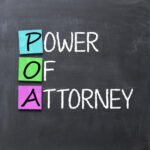
Understanding Power of Attorney in New York
In New York, a power of attorney is governed by the New York General Obligations Law. The principal must be 18 years or older and possess the mental capacity to understand the nature and consequences of the document. The agent, on the other hand, must be trustworthy, competent, and willing to act on the principal’s behalf.
Reasons for Contesting a Power of Attorney
A contested power of attorney may arise due to various reasons, including:
- Lack of capacity: The principal lacked the mental capacity to execute the POA, rendering it invalid.
- Undue influence: The POA was executed under pressure or coercion from another party.
- Fraud: The POA was obtained through misrepresentation or deceit.
- Agent misconduct: The agent has misused their authority, engaged in self-dealing, or failed to fulfill their fiduciary duties.
The Process of Contesting a Power of Attorney in New York
If you suspect that a power of attorney is invalid or that the agent is acting inappropriately, it’s crucial to seek legal advice and act promptly. Here are the general steps to contest a POA in New York:
- Consult with an attorney: Speak with an experienced elder law or estate planning attorney who can assess the situation and guide you through the process.
- Gather evidence: Collect relevant documents, records, and witness statements to support your claim.
- File a petition: Your attorney will help you file a petition with the appropriate court, requesting the POA’s revocation or the appointment of a new agent.
- Notify parties: All relevant parties, including the principal, the agent, and other interested individuals, must be informed of the proceedings.
- Court hearing: A hearing will be held, allowing both sides to present their arguments and evidence. The judge will then determine the validity of the POA and the agent’s actions.
- Court decision: If the court rules in your favor, the POA may be revoked, the agent removed, or a new agent appointed.
Protecting the Principal’s Interests
Contesting a power of attorney can be a complicated process, and the principal’s best interests should always be at the forefront. To protect the principal, consider the following measures:
- Establish a comprehensive estate plan: A well-crafted estate plan can provide clear instructions on the principal’s wishes, making it less likely for disputes to arise.
- Choose the right agent: Select an agent with integrity, competence, and a clear understanding of the principal’s wishes.
- Monitor the agent’s actions: Keep an eye on the agent’s activities and maintain open lines of communication.
- Seek professional guidance: Consult with an experienced attorney to ensure the proper drafting and execution of the power of attorney.
Contesting a power of attorney in New York can be a complex and emotionally charged process. It’s essential to act promptly, gather strong evidence, and seek expert legal guidance to protect the principal’s interests and ensure their wishes are respected. By taking these steps, you can help prevent and resolve disputes involving the power of attorney.
